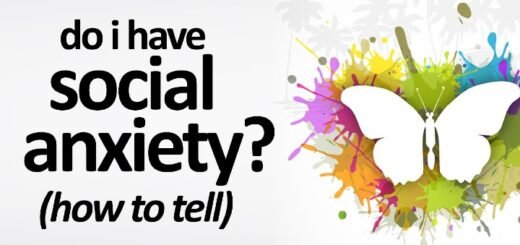Mindfulness and Meditation: Unlocking Social Phobia Recovery
In the journey towards overcoming social phobia, transformative practices such as mindfulness and meditation have emerged as powerful tools for recovery. In New Zealand, individuals grappling with social anxiety often seek holistic approaches to enhance their mental well-being. These practices not only cultivate self-awareness and emotional regulation but also foster resilience, enabling individuals to confront and navigate social situations with greater ease.
As shared in the real stories of social phobia recovery, many Kiwis have found solace in mindfulness techniques, illustrating how these practices can significantly alleviate the challenges posed by social phobia. By integrating mindfulness and meditation into daily routines, individuals can embark on a transformative path toward recovery, ultimately leading to improved social interactions and a more fulfilling life.
Understanding Social Phobia and Its Impact
Social phobia, or social anxiety disorder, is characterized by an intense fear of social situations where one might be judged, embarrassed, or scrutinized. This condition can significantly hinder an individual’s ability to engage in everyday activities, such as attending gatherings, speaking in public, or even making small talk. In New Zealand, social phobia affects a considerable portion of the population, impacting their quality of life and leading to avoidance behaviors. Understanding the nuances of this disorder is crucial in addressing its symptoms effectively. With a growing awareness of mental health issues, many resources are available to aid individuals in their journey towards recovery. For more information on navigating social phobia recovery, visit SocialPhobia.org.nz.
The Role of Mindfulness in Social Phobia Recovery
Mindfulness is the practice of being present in the moment and observing thoughts and feelings without judgment. This technique can be particularly beneficial for those struggling with social phobia. By incorporating mindfulness into daily routines, individuals can learn to manage their anxiety more effectively. Mindfulness encourages individuals to acknowledge their fears without allowing those fears to dictate their actions. This practice can be particularly useful in social settings where anxiety often spikes. A simple way to practice mindfulness is through guided meditation sessions available through various apps or local workshops in New Zealand. Engaging with community centers that offer mindfulness classes can provide supportive environments for individuals seeking social phobia recovery.
Mindfulness Techniques for Daily Practice
To integrate mindfulness into daily life, individuals can start with simple techniques. One effective method is the “5-4-3-2-1” grounding exercise, which involves identifying five things you can see, four things you can touch, three things you can hear, two things you can smell, and one thing you can taste. This practice can help shift focus away from anxiety-producing thoughts to the present moment. Additionally, maintaining a mindfulness journal can encourage reflection on social interactions and emotional responses. Writing about experiences can provide insights into patterns of anxiety, making it easier to address these challenges in recovery.
Meditation as a Tool for Anxiety Management
Meditation serves as a powerful tool for managing anxiety and promoting relaxation. Various forms of meditation, such as loving-kindness meditation or body scan meditation, can help reduce the symptoms of social phobia. In New Zealand, numerous meditation groups and retreats focus on mental health and well-being. These community resources can offer support and camaraderie, making the journey toward social phobia recovery less isolating. Establishing a regular meditation practice can cultivate greater emotional resilience and improve overall mental health.
Creating a Personal Meditation Space
Establishing a dedicated space for meditation at home can enhance the practice. This space should be quiet, comfortable, and free from distractions. Incorporating elements like soft cushions, calming scents, or soothing music can create an inviting environment that encourages regular practice. Beginners can start with short sessions, gradually increasing their duration as they become more comfortable. Online platforms often provide guided meditations tailored to anxiety, which can be particularly beneficial for those with social phobia.
Combining Mindfulness and Meditation with Other Therapeutic Approaches
While mindfulness and meditation are effective tools for social phobia recovery, combining these practices with other therapeutic approaches can yield even greater benefits. Cognitive-behavioral therapy (CBT) is one such approach that focuses on changing negative thought patterns and behaviors associated with social anxiety. In New Zealand, many therapists integrate mindfulness and meditation techniques into their CBT sessions, creating a holistic treatment plan. This combination allows individuals to confront their fears while developing coping strategies that empower them to engage more fully in social interactions.
Finding the Right Support
Finding a qualified mental health professional who understands social phobia is crucial for effective recovery. In New Zealand, various organizations and online platforms can help connect individuals with therapists specializing in anxiety disorders. When seeking support, consider asking about their experience with mindfulness and meditation techniques. This alignment can enhance the therapeutic process and provide a more comprehensive approach to social phobia recovery.
Building a Support Network in New Zealand
A robust support network is essential in the journey toward recovering from social phobia. Connecting with others who share similar experiences can foster a sense of belonging and understanding. In New Zealand, various support groups and community organizations focus on mental health, providing platforms for individuals to share their stories and strategies for coping. Engaging with these communities can help reduce feelings of isolation and promote healing.
Utilizing Online Resources and Local Groups
Many online resources, such as forums and social media groups, offer a safe space for discussing social phobia. Additionally, local meet-ups and workshops can provide opportunities for face-to-face interaction in a supportive environment. These gatherings can be particularly helpful for practicing social skills and gradually exposing oneself to social situations, which is a crucial aspect of social phobia recovery. For more information on support resources, visit SocialPhobia.org.nz.
The Path to Long-Term Recovery
Achieving long-term recovery from social phobia requires commitment and patience. Mindfulness and meditation can play a pivotal role in this journey, helping individuals build resilience against anxiety triggers. As individuals continue to practice these techniques, they may find it easier to navigate social situations and engage with others. Over time, the skills learned through mindfulness and meditation can lead to lasting changes in thought patterns and behaviors.
Celebrating Progress and Setting Goals
Regularly reflecting on personal progress can help maintain motivation throughout the recovery process. Setting achievable goals, such as attending a social event or initiating a conversation, can provide a sense of accomplishment. Celebrating these milestones, no matter how small, reinforces positive behavior and encourages continued growth. By embracing mindfulness and meditation as integral parts of their recovery, individuals can cultivate a deeper understanding of themselves and their social phobia, paving the way for a more fulfilling life.
FAQs
What is social phobia, and how does it affect individuals?
Social phobia, also known as social anxiety disorder, is characterized by an intense fear of social situations where individuals might be judged or scrutinized by others. This condition can lead to avoidance of social interactions, significant distress, and a reduced quality of life, making it challenging to form relationships or pursue personal and professional goals.
How can mindfulness practices help in social phobia recovery?
Mindfulness practices help individuals with social phobia by promoting awareness of the present moment and reducing anxiety about potential social interactions. By focusing on their thoughts and feelings without judgment, individuals can develop a greater sense of control over their responses to anxiety-provoking situations, ultimately aiding in their recovery.
What role does meditation play in managing social anxiety?
Meditation can be an effective tool for managing social anxiety by fostering relaxation and helping individuals cultivate a sense of calm. Regular meditation practice can lead to decreased levels of stress and anxiety, allowing individuals to approach social situations with greater confidence and ease, thereby facilitating social phobia recovery.
Are there specific mindfulness techniques recommended for social phobia?
Yes, specific mindfulness techniques such as mindful breathing, body scans, and loving-kindness meditation are particularly beneficial for individuals dealing with social phobia. These techniques can help reduce anxiety symptoms, enhance self-awareness, and cultivate compassion for oneself and others, which are essential for overcoming social fears.
How often should one practice mindfulness or meditation for effective results?
For effective results, it is recommended to practice mindfulness or meditation daily, even for just a few minutes. Consistency is key in building resilience against anxiety. Over time, individuals may notice improvements in their ability to manage social situations and a reduction in symptoms associated with social phobia.
Can mindfulness and meditation be integrated into therapy for social phobia recovery?
Absolutely! Many therapists incorporate mindfulness and meditation techniques into their treatment plans for social phobia. This integrative approach can enhance traditional therapeutic methods by providing clients with practical tools to manage anxiety and improve their overall emotional well-being during their recovery journey.
What are some resources for learning mindfulness and meditation techniques?
There are numerous resources available for learning mindfulness and meditation techniques, including apps like Headspace and Calm, online courses, books, and local meditation groups. Many therapists also offer guidance in these practices as part of a comprehensive treatment plan for social phobia recovery, making these resources easily accessible.
References
- Social Phobia Support New Zealand – A comprehensive resource offering support and information for individuals dealing with social phobia, including insights on mindfulness and meditation practices.
- Mindfulness Meditation and Social Anxiety Disorder: A Review of the Literature – A scholarly article that reviews various studies on the efficacy of mindfulness meditation in treating social anxiety disorders.
- How Mindfulness Helps Anxiety – An article from Psychology Today discussing how mindfulness practices can alleviate anxiety symptoms, including those related to social phobia.
- The Effectiveness of Mindfulness-Based Interventions for Social Anxiety: A Systematic Review and Meta-Analysis – A systematic review analyzing the impact of mindfulness-based interventions on social anxiety, providing evidence for their effectiveness.
- Mindfulness Practice for Social Anxiety – An informative article outlining practical mindfulness techniques specifically aimed at reducing social anxiety, along with tips for implementation.




